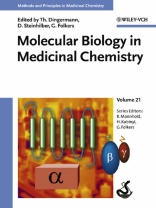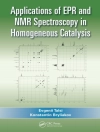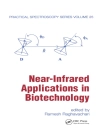This readily comprehensible book explains the identification of molecular targets via cellular assays, reporter genes or transgenic models, as well as surveying recent advances in the synthesis, separation and analysis of drugs. A special section is devoted to molecular genetics methods.
With its examination of these novel methods and generous practical advice, this is essential reading for all pharmaceutical chemists, molecular biologists and medical researchers using molecular methods to study drugs and their action.
Table des matières
MOLECULAR TARGETS
Cellular Assays in Drug Discovery
Gene Knockout Models
Reporter Gene Assay Systems for the Investigation of GPCRs
From the Human Genome to New Drugs: The Potential of Orphan GPCRs
SYNTHESIS
Stereoselective Synthesis with the Help of Recombinant Enzymes
Nucleic Acid Drugs
ANALYSIS
Recent Trends in Enantioseparation of Chiral Drugs
Affinity Chromatography
NMR-based Drug Discovery
13C- and 15N-Isotopic Labeling of Proteins
Antibody Fragments as Crystallization Enhancers
KINETICS, METABOLISM AND TOXICOLOGY
Pharmacogenetics: The Effect of Inherited Genetic Variation on Drug Disposition and Drug Response
Pharmacogenomics of Bioavaliability and Elimination
Toxicogenomics: Integration of New Molecular Biological Tools in Toxicology
A propos de l’auteur
Theodor Dingermann, born 1948, studied pharmacy at the University of Erlangen, Germany. After obtaining his Ph D in biochemistry, he worked as a post-doc at Yale University, New Haven. In 1987 he completed his habilitation for the disciplines of biochemistry and molecular biology. Since 1990 he is full professor of pharmaceutical biology at Goethe University in Frankfurt, Germany. He is editor-in-chief of two journals, ‘Die Pharmazie’ and ‘Pharmazie in unserer Zeit’. Furthermore, he is chairman of the working group on biopharmaceuticals and vice-chairman of the committee on pharmaceutical biology of the German Arzneibuch commission. From 2000 to 2004 he has been President of the German Pharmaceutical Society.
Dieter Steinhilber, born 1959, studied pharmacy at the University of Tübingen (Germany). After an assistantship there he spent a postdoc period with Nobel prize winner Bengt Samuelsson in Stockholm (Sweden). In 1994 he received an associate professorship and since 2000 he is a full professor for pharmaceutical chemistry at the Goethe University in Frankfurt (Germany). He is also the chairman of the scientific advisory board of Phenion, a company for molecular cell physiology.
Gerd Folkers is professor of pharmaceutical chemistry at the ETH Zürich since 1991. He studied pharmacy at the University of Bonn and earned his Ph.D. on structure-activity relationships of desapurines. He then moved to the University of Tübingen, where he completed his habilitation in pharmaceutical chemistry. During a stay with H.-D. Hoeltje in Bern, he studied new research methods in computer-aided molecular design and expanded this knowledge during other stays with T. Blundell at the Birkbeck College and E. Meyer at Texas A&M University.
The focus of his research is the molecular interaction between drugs and their binding sites. Besides his work on the molecular mechanism of ‘conventional’ nucleoside therapeutics against virus infections and cancer, his special interest has shifted to immuno-therapeutics.












